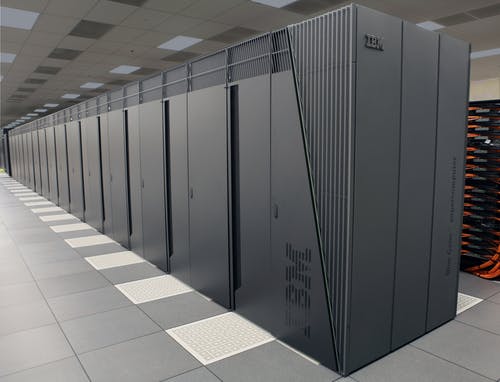It’s natural to be scared of anything you do not have a clear understanding of. This is particularly true about new technologies. Regardless of how much we are attracted to it, implementing technology in an established business model can be worrisome. Therefore, it is important to have a thorough understanding before embracing a new feature, platform, or gadget.
Cloud computing isn’t different either. Despite the amazing benefits the technology offers, most organizations are still skeptical about fully embracing it. Security is the number one concern for these organizations. They don’t want to hand over their crucial data and transactions to a third-party platform for storage without getting a full guarantee of security.

But is cloud computing provider fully responsible for your data security?
While most significant cloud providers – such as Amazon, Google, and Microsoft – offer top-notch data security, it isn’t fully their responsibility either. It’s your data and to ensure its 100% security should be a team effort. Since these platforms offer you control and access to your data center, you cannot completely rely on their services either. However, concluding that the cloud isn’t safe can be a hasty decision.
In fact, the cloud is safer than you think. You have professional cloud providers offering you their service, with data security as their top priority. While organizations are required to take some common-sense security measures on their own, the cloud will ensure your data is safe on their platform. You can also ensure security by hiring employees expert in both cloud computing and cybersecurity or by enrolling your team to get Security Plus certification or any other similar cybersecurity certification.
They are in no way responsible in case your data is stolen from your premises or by getting physical access to your system.
All in all, legacy systems are failing to offer the storage support and security required to keep up with the growing data and workload demands. But with cloud computing, this is possible. Considering all this, we are here with best practices for Cloud Security in 2023.
Enterprise Market and Cloud Security
According to a study, around 70% of IT professionals believe that cloud is far more secure than legacy systems. Some oppose the idea by highlighting high-profile data breach cases like Apple iCloud, Home Depot, and Target. These cases were utterly highlighted and gained a lot of media attention. But what media failed to cover was how these breaches were not the fault of cloud providers but the human error on premise.
For instance, in both Home Depot and Target cases, hackers attacked the third-party vendors and store personal information. The cloud was not involved. Fearing cloud is a thing of past. It’s a myth, especially when there are valid reasons why moving your data to the cloud is safer than you think.
3 Security Features of Cloud You Must Know About
Here are the top three shortlisted reasons to help you understand why moving to the cloud is a sound decision.
Built-in Security in Application
While security still acts as the number one factor why most businesses do not adopt cloud, it continues to evolve to ensure maximum data protection. Not only the cloud providers are professionals in what they do, but they are also continuously making efforts and investments to contribute to a major improvement in data protection. Many significant platforms offer services that are loaded with built-in security features, such as role-based authentication.
By utilizing cloud services, organizations can add an addition and a much stronger layer of protection against data-theft threats. These platforms require credibility verification to allow access to data. This ensures that malicious insiders, hijacked accounts, and unauthorized access are denied immediately.
On the other hand, with authentication, you can instantly access your information anytime and anyplace, without reducing risk or losing control.
You Are Not The Expert, They Are
While you may offer various CompTIA certification training or security+ certification to train your staff, they cannot completely eliminate the risk of in-house cybercrime. Of course, they can improve the security measures and train other staff to be more cautious of cybercriminal activities, even professionals can fall short if there’s a risk of human error or unauthorized physical access to hardware.
On the contrary, if you rely on reputable cloud vendors, you can be at peace, knowing your data assets are in the hands of a professional. Since cybersecurity is their number one priority, they have the greatest and latest security practices to eliminate the risk to a great extent. This is not to conclude that there will never be a way or a new hack to get through the system, but it will be very challenging.
Also, the most prominent cloud service providers such as Google, Microsoft, and Amazon have robust, multi-level firewalls and other security measures in place to offer you maximum security for your data. Also, they hold regular audits to scan every aspect of their system to identify loopholes, if any. Last but not least, they are the leaders of this business, so they will do everything they can to stay on top in providing the greatest and latest protection.
Improved Safeguards
What safeguards do you currently have to keep your data secure?
Security is a concern beyond hacking. Even if you back up your systems every day and have a secure storage system, there’s always a risk of losing worthy data in case of a natural disaster. Information saved on phones, computers, and tablets can make the situation even worse, especially if you have been maintaining your backup in the main facility that was just hit by a disaster.
Naturally, cloud providers possess highly evolved safeguards to help preserve your data both off-site and on-site. This is one of the major reasons why the majority of the Fortune 500 companies have opted for Microsoft and Azure service providers for security providers as they have the most secure and impressive global datacenters.
Even if your setup is much smaller than a Fortune 500, you can still rely on these major platforms to offer you the security that ensures maximum safety. Cloud services have been scaled as per your needs so that you can benefit from them by securing the valuable data that you cannot risk losing.
Final Word
As mentioned earlier, you must always play your part together with the cloud providers for maximum benefits. Last but not least, train your employees and implement limitations and rules to continue safe in-house computing practices.

